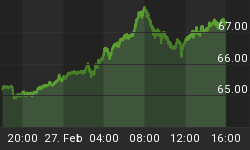Project Syndicate writer, Hans-Werner Sinn, explains why the ECB's asset purchases and Target2 imbalances constitute "Europe's Secret Bailout".
Under the ECB's QE program, which started in March 2015, eurozone members' central banks buy private market securities for €1.74 trillion ($1.84 trillion), with more than €1.4 trillion to be used to purchase their own countries' government debt.
The QE program seems to be symmetrical because each central bank repurchases its own government debt in proportion to the size of the country. But it does not have a symmetrical effect, because government debt from southern European countries, where the debt binges and current-account deficits of the past occurred, are mostly repurchased abroad.
For example, the Banco de España repurchases Spanish government bonds from all over the world, thereby deleveraging the country vis-à -vis private creditors. To this end, it asks other eurozone members' central banks, particularly the German Bundesbank and, in some cases, the Dutch central bank, to credit the payment orders to the German and Dutch bond sellers. Frequently, if the sellers of Spanish government bonds are outside the eurozone, it will ask the ECB to credit the payment orders.
In the latter case, this often results in triangular transactions, with the sellers transferring the money to Germany or the Netherlands to invest it in fixed-interest securities, companies, or company shares. Thus, the German Bundesbank and the Dutch central bank must credit not only the direct payment orders from Spain but also the indirect orders resulting from the Banca de España's repurchases in third countries.
The payment order credits granted by the Bundesbank and the Dutch central bank are recorded as Target claims against the euro system.
For the GIPS countries [Greece, Italy, Portugal, and Spain], these transactions are a splendid deal. They can exchange interest-bearing government debt with fixed maturities held by private investors for the (currently) non-interest-bearing and never-payable Target book debt of their central banks - institutions that the Maastricht Treaty defines as limited liability companies because member states do not have to recapitalize them when they are over-indebted.
If a crash occurs and those countries leave the euro, their national central banks are likely to go bankrupt because much of their debt is denominated in euro, whereas their claims against the respective states and the banks will be converted to the new depreciating currency. The Target claims of the remaining euro system will then vanish into thin air, and the Bundesbank and the Dutch central bank will only be able to hope that other surviving central banks participate in their losses. At that time, German and Dutch asset sellers who now hold central bank money will notice that their stocks are claims against their central banks that are no longer covered.
One should not assume that anyone is actively striving for a crash. But, in view of the negotiations - set to begin in 2018 - on a European fiscal union (implying systematic transfers from the EU's north to its south), it wouldn't hurt if Germany and the Netherlands knew what would happen if they did not sign a possible treaty. As it stands, they will presumably agree to a fiscal union, if only because it will enable them to hide the expected write-off losses in a European transfer union, rather than disclosing those losses now.
Target2 Answer
I had been struggling to understand the precise relationship between Target2 liabilities, including those within the ECB itself, and the ECB's QE program. The above explanation appears to provide the answer.
Regardless, euro-denominated debts that cannot possibly be paid back keep piling up.
Target2 Liabilities

If Greece were to leave the Eurozone and pay back its debts in Drachmas, either the ECB would have to print €71.0 billion to cover the default, or the other eurozone nations would have to split the bill based on their percentage weight in the EMU.
If Italy left the eurozone, the shared liability would be €386.1 billion.
Responsibility Percentages

That table refers to ESM commitments. Percentage responsibilities apply should there be a default.
What If?
If Italy were to default, its 17.9% would have to be redistributed proportionally to the other countries or the ECB would have to violate its treaty and print the euros.
My conclusion is not the same as Hans-Werner Sinn who concludes "As it stands, they [Germany and the Netherlands] will presumably agree to a fiscal union, if only because it will enable them to hide the expected write-off losses in a European transfer union, rather than disclosing those losses now."
IÂ strongly suspect the ECB would violate the treaty agreements and print euros to cover a default. Germany and the Netherlands would go along.















